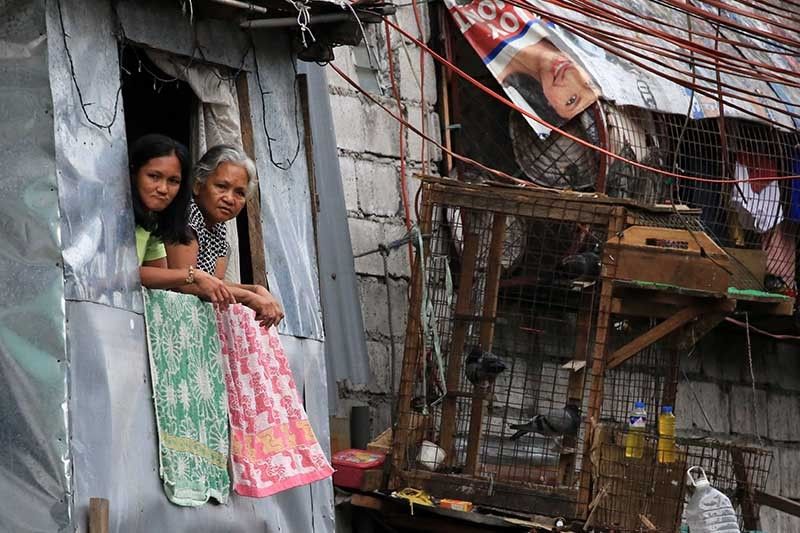Government urged to keep women’s health a priority amid COVID-19 pandemic

MANILA, Philippines — Women's rights advocates have asked the national government to ensure that women's health is still firmly in its priorities amid the novel coronavirus disease 2019 (COVID-19) pandemic.
The rights groups echoed their call after a reported case of hospitals refusing to accept a pregnant woman for treatment.
In a joint statement, the Center for Reproductive Rights and the Women’s Global Network for Reproductive Rights urged the administration to ensure the availability and access to essential sexual and reproductive health (SRH) services as part of its COVID-19 response.
RELATED: NBI probes death of woman rejected by 6 hospitals
As of this post, the National Bureau of Investigation has been asked to probe the death of Catherine Bulatao, a pregnant woman who died after reportedly being refused admission by six hospitals. This, after Mary Jane Alpide died while in labor in April after being turned down by four medical facilities.
In their statement, the two groups also said that another woman, this time a Laguna resident named Nancy, "was refused by three hospitals before being admitted and successfully delivered her baby in the fourth facility they went to."
"Nancy’s experience is the third reported case of pregnant women refused treatment by medical facilities since the government put in place stringent containment measures to mitigate the impact of the pandemic," the joint statement read.
Center for Reproductive Rights Asia Legal Adviser lawyer Jihan Jacob said: "The refusal to administer emergency reproductive health care to women like Nancy, Katherine and Mary Jane violates their fundamental rights guaranteed under our Constitution and a myriad of our laws including the Anti-Hospital Deposit Law, Magna Carta of Women, and the Responsible Parenthood and Reproductive Health Act."
"It also violates the government’s international human rights obligations to guarantee women’s rights to life, health, and equality and nondiscrimination, The current pandemic and resource constraints do not justify these refusals,” she added.
Lawyer Jacqueline Ann de Guia, Commission on Human Rights spokesperson, in an earlier statement said that some of these facilities allegedly demanded advance payment before admitting the patients, constituting a clear violation of the Anti-Hospital Deposit Law.
Section 1 of Republic Act No. 10932, or the Anti-Hospital Deposit Law, reads:
"In emergency or serious cases, it shall be unlawful for any proprietor, president, director, manager or any other officer, and/or medical practitioner or employee of a hospital or medical clinic to request, solicit, demand or accept any deposit or any other form of advance payment as a prerequisite for administering basic emergency care."
Pregnancy in the time of coronavirus
Even in areas recently graduated to more relaxed general community quarantine rules, pregnant women, along with senior citizens and anyone below 21, are still required to remain indoors.
Health authorities have said that pregnant women are more at risk of contracting the new pathogen, though the Commission on Human Rights has urged the Transportation Department to lift its ban on pregnant women and senior citizens as this would impede their access to essential goods and services.
RELATED: CHR: Lift MRT, LRT ban on seniors, pregnant women
Earlier in May, the group was among 46 signatories in a separate statement calling for "clear mechanisms to ensure availability, accessibility, acceptability and quality of sexual and reproductive health information and services."
"Before the pandemic, it was estimated that 2,400 women and girls die every year in the Philippines from preventable causes related to pregnancy and childbirth including postpartum hemorrhage, complications from unsafe abortion, hypertensive disorders and sepsis," the statement read.
"There is a high probability that these preventable deaths would only increase with diminished health system resources, lack of immediate access to accurate reproductive health information and services, inadequate transportation facilities, and decreased or total loss of income and employment opportunities in a COVID-19 response that fails to take into account the specific needs of women’s reproductive health and rights."
Whether in peacetime or in war, women are among the hardest hit during calamities, and an enhanced community quarantine is no exception.
Days after the commemoration of Women with Disabilities Day, the CHR also included persons with disabilities—whom they said were often excluded from decision-making—and women.
— Franco Luna (@FrancoOvrboard) April 5, 2020
Both are often among the hardest hit during calamities. Story: https://t.co/lv5fcA7LXy @PhilstarNews pic.twitter.com/zGlu8ZrYJe
General Recommendation 24 of the United Nations Committee on the Elimination of Discrimination against Women urges state parties to “implement a comprehensive national strategy to promote women’s health throughout their lifespan. This will include interventions aimed at both the prevention and treatment of diseases and conditions affecting women...and will ensure universal access for all women to a full range of high-quality and affordable health care, including sexual and reproductive health services.”
RELATED: Women in farming towns bear brunt of El Niño
Even President Rodrigo Duterte has issued a warning against hospitals turning away patients in critical condition.
During his April 13 public address, the chief executive was quoted as saying: "Kaya lahat na magkasakit, heart attack, appendicitis, pumutok ang kung anong puputok diyan, pumutok ‘yung utak, (So, everyone who is sick, has a heart attack, apendicitis) especially government hospital, my order is: must accept admission. You fail on that, I will relieve all of you sa hospital and you can consider yourself suspended because the written order will follow."
Duterte's May 5 report to Congress on the use of his emergency powers also disclosed that the national police documented 763 cases of crimes against women and 521 crimes against children throughout the lockdown of Luzon.
In the statement, WGNRR executive director Marevic Parcon said: “While relevant agencies have come up with guidelines, memorandums, and statements supporting the supply and provision of sexual and reproductive health commodities and services, governments should ensure that local governments, public and private facilities, and community health frontlines have the capacities to implement them safely and adequately.”
“We have already lost hundreds of lives due to the virus. Let’s not add more deaths by refusing life-saving treatment to women,” Parcon added.
As of the Department of Health's latest tally on Sunday afternoon, there are 9,054 active cases of the novel coronavirus in the Philippines.
- Latest
- Trending


































